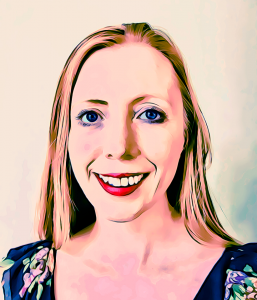139 Letter from Kate Dashper

Dear future generations of women tourism researchers,
I am honoured to be asked to write this letter to you, and to read and share all the thoughtful advice and inspiration of my fellow authors. This illustrates one of the ways in which academia can be amazing – we can come together in a supportive and collaborative environment to enable each other’s success. It’s not always like this, and I’m sure you will have heard many more negative stories. But academia does not need to be a toxic space and it is us up to all of us – academics at every stage of our careers – to try and shape the world we want to live in. It is in this spirit that I raise these issues for you to think about.
Focus on something you are passionate about
Work takes up a huge proportion of our lives, and research is a demanding and consuming task. You should try and expend these energies on things that matter to you. I have been able to combine aspects of my hobby – horses – with my tourism research and this has led me to greater insight about my own passion, as well as ensuring that my fieldwork is interesting and exciting for me. It won’t always be possible to combine hobbies and research, and some of the work we do is just not that exciting, but do try and find something you are passionate about to study as this will help you feel inspired and enlivened by your research.
Build supportive networks
If I had to identify one thing that makes academia a great career for me, it would be the people I have met through my research. I consider myself very lucky to have a fantastic network of supportive and incredible academics (mostly, but not exclusively, women) to collaborate with, bounce ideas off, laugh with and sometimes moan (even occasionally cry). Academia is very individualistic and competitive but finding a good support network is so important to navigating the pressures of your career and enjoying the fun times – often at conferences!
Stay true to your values
I am happy to work on a diverse range of topics, using different methods and theories as appropriate, and with lots of different collaborators. What I try to maintain within this is a commitment to my core values – to try to advocate for those on the margins, to actively resist exploitation and to be as collaborative and supportive as I hope other people will be with me. Whatever matters to you, stick with it. Be the kind of academic you want to see, act to others in a way you would be proud to tell people about, and then you can stand confidently by your work and your reputation.
Remember, work is not everything
After my PhD viva (defence) my university put on a formal lunch for me and my examiners. I can’t recall much of what we talked about (being relieved but exhausted!) but I do remember the external examiner’s advice: don’t let work take over everything. As academics, we never feel like we are finished or fully up to date. There’s always more to read, a paper to work on, a grant to submit. We never feel like we have done enough. But often we have. It’s important to take breaks, give yourself some time off to relax and enjoy the rest of your life. We study tourism, but sometimes we should also just switch off and enjoy being tourists ourselves. Our work is important to us, but so are our families, friends, hobbies and our own physical and mental well-being. Try and maintain some perspective and safeguard your downtime.
We can learn so much from each other and I hope you find this resource useful and inspiring. Ultimately, though, you need to find your own way so trust yourself, connect with other people and try and enjoy what is a privileged opportunity to be a tourism researcher.
All the very best,
![]()
Kate Dashper
Leeds Beckett University, United Kingdom

